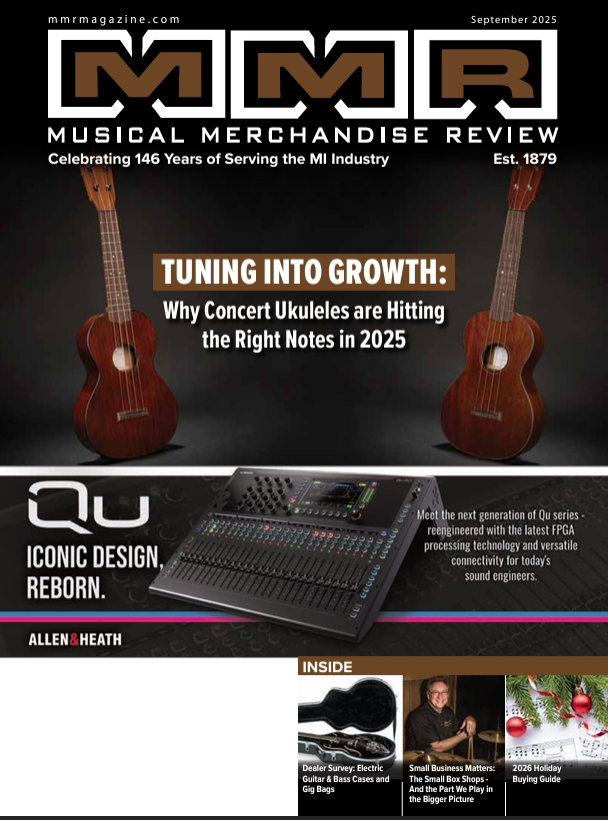 With just over half (51.2 percent) of participants in this month’s dealer survey (sent out to over 300 retailers) reporting sales in 2019 as being level to the numbers from 2018, the guitar and bass pick market appears to be quite stable.
With just over half (51.2 percent) of participants in this month’s dealer survey (sent out to over 300 retailers) reporting sales in 2019 as being level to the numbers from 2018, the guitar and bass pick market appears to be quite stable.
A fact that’s not especially surprising – most anyone who plays a guitar or bass needs picks [All classical, flamenco, and other players, don’t bother writing in – unless you’ve got a really witty dig to make…] and, as with strings, these aren’t one-time purchases. With use, picks wear down, chip, crack, or get lost. And, while the market for actual guitars and basses ebbs and flows, the number of long-term, active musicians is fairly constant. If I’m walking into your store and buying a bag of picks today, odds are I’ll be back for another bag in six months or so.
As with strings, cables, amplification, effects, and virtually any and all fretted-related gear, many – if not most – serious players have “their” pick and tend to be fairly loyal. It’s a little surprising that, given the variety of options available, these discerning and demanding customers still tend to skew towards the traditional. The vast majority embrace Tortex, celluloid, or nylon plectrums, despite the myriad of other, more exotic options (bone, felt, stone, metal, wood, Delrin, et cetera). As Jerry Vesely of Vesely’s Music (Parowan, Utah) notes, “There have been sporadic ‘trendy’ SKUs over time – sometimes only an opening order or two, then gone.”
 While some observe that, despite the consistent sales guitar picks represent, there’s not much profit to be made, others argue that the money is there – you just have to put in the effort. “We carry Blue Chip picks which sell for $40 each,” offers Tim Bascom of Lebanon, Missouri’s Morgan Music. “How do we sell them? Easy…we sell them. We make our customers aware that there is a difference in picks (especially for acoustic players) and we give them one to try out on a guitar in-store. They hear the difference, and they buy it. It’s not called ‘selling’ for nothing, folks!”
While some observe that, despite the consistent sales guitar picks represent, there’s not much profit to be made, others argue that the money is there – you just have to put in the effort. “We carry Blue Chip picks which sell for $40 each,” offers Tim Bascom of Lebanon, Missouri’s Morgan Music. “How do we sell them? Easy…we sell them. We make our customers aware that there is a difference in picks (especially for acoustic players) and we give them one to try out on a guitar in-store. They hear the difference, and they buy it. It’s not called ‘selling’ for nothing, folks!”
“We carry all the ‘normal’ brands of picks you’d expect to see in any music store… but we also carry Blue Chip Picks, Wegen Picks (made in the Netherlands), and Cool Picks’ ‘Cool Cell’ picks which are very popular, as they are old-fashioned picks made of celluloid, like they used to make back in the ‘60s. They’re made in Japan, and live up to their name.”
Tim Bascom
Morgan Music
Lebanon, Missouri
 “Nylon. People seem to like that ‘cat tongue’ feel, as though a cat were to lick you [and] the fact that the dimples give you a good grip with no slipping.”
“Nylon. People seem to like that ‘cat tongue’ feel, as though a cat were to lick you [and] the fact that the dimples give you a good grip with no slipping.”
Donald Whalen
Swansboro Music & Pawn
Swansboro, North Carolina
Have you been noticing any current trends when it comes to this market segment – either on the consumer or vendor side (materials/techniques being used by suppliers, buying preferences or habits of end-users, et cetera)?
“Despite carrying packages of picks, our customers prefer to by onesies, twosies, and get a wide variety of sizes and thicknesses from our self-serve trays.”
Ed Intagliata
Cassell’s Music
San Fernando, California
“I have noticed that when we have the picks in a nice looking, brand-labeled display right at the front counter we seem to sell through them faster.”
Kyle Rindlisbacher
Riverton Music
Sandy, Utah
“We designed a cool pick that has become our best seller. Most of our customers are not picky(!) about the material – they just want some colorful, interesting picks in a few gauges. So our store-brand picks do best.”
Ted Parrish
Parrish Music
Viroqua, Wisconsin
“Smaller pics seem to be popular again – especially the Dunlop Max Grip Jazz III style.”
Spidey Mulrooney
The Music Shop
Southington, Connecticut
“Fewer plain, more ‘novelty’ [picks] selling.”
Joanne Julier
Cerdd Ystwyth Music
Aberystwyth, Ceredigion
Wales
“Taylor is talking about how pick choice impacts your tone. I will try to make myself and my customers more aware of this.”
John Barton
Friendly River Music
Cornish, Maine
“If people are able to see, touch and compare a large variety, they are more likely to ‘buy to try’ and not just buy their favorites.”
Karen D. Janiszewski
Music Room
Cheektowaga, New York




























